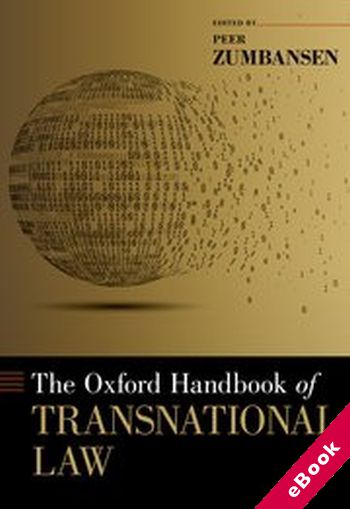
The device(s) you use to access the eBook content must be authorized with an Adobe ID before you download the product otherwise it will fail to register correctly.
For further information see https://www.wildy.com/ebook-formats
Once the order is confirmed an automated e-mail will be sent to you to allow you to download the eBook.
All eBooks are supplied firm sale and cannot be returned. If you believe there is a fault with your eBook then contact us on ebooks@wildy.com and we will help in resolving the issue. This does not affect your statutory rights.
The Oxford Handbook of Transnational Law offers a unique and unparalleled treatment and presentation in the field of Transnational Law that has become one of the most intriguing and innovative developments in legal doctrine, scholarship, theory, and practice today. This in itself constitutes an ambitious editorial project, not only within law and legal doctrine, but also with regard to an increasing interest in an interdisciplinary engagement of law with social sciences - including sociology, anthropology, political science, geography, and political theory.
Closely tied into the substantive transformation that many legal fields are undergoing is the observation that many of these developments are driven by changes in an increasingly global legal practice today. The concept then, of 'transnational law' aims at capturing the distinctly border- crossing nature even of those legal fields which had for the longest been time been seen as having merely 'domestic' relevance. This shift also requires a conscious effort among law school classroom instructors, casebook authors, and curriculum reformers to adapt their teaching content to these circumstances.
As the authors of this Handbook make clear, this adaptation requires a close dialogue between a scholarly investigation into the transnational 'concept of law' and the challenges faced by practicing lawyers, be that as solicitor, in-house counsel, as judges, or as bureaucrats in a globalized regulatory and socio-economic environment. While the main thrust is on the transnationalization of legal doctrine and legal theory, with a considerable contribution from and engagement with social sciences, the Handbook features numerous reflections on the relationship between transnational law and legal practice.